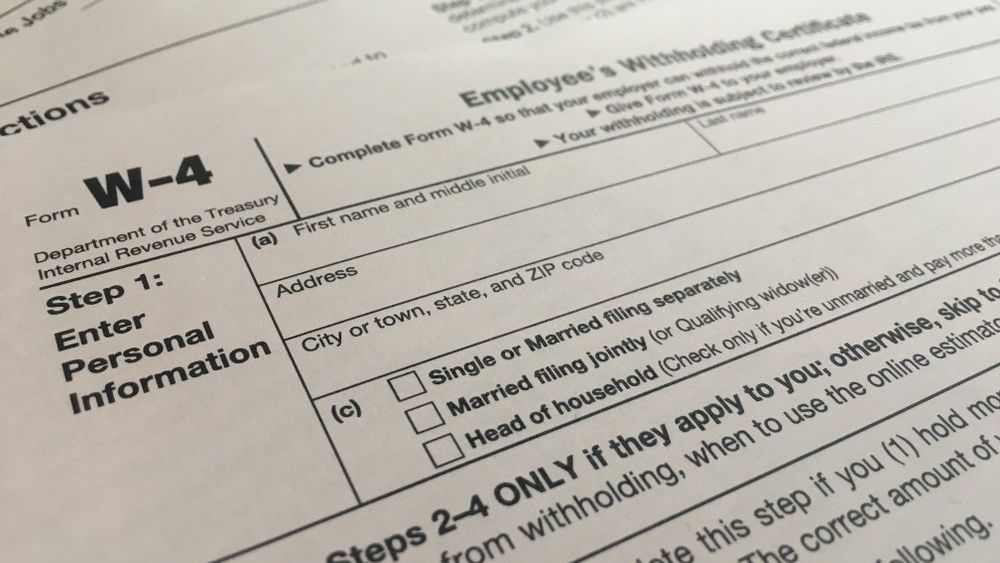A new analysis warns that residents in several states could face taxes on the student debt forgiveness announced by President Joe Biden last week — though some of those states have said they plan to take action to address the issue, according to reports.
According to a report from the Tax Foundation, a think tank focused on tax policies at the federal and state level, debt forgiveness counts as income and is taxable. However, under the American Rescue Plan, President Biden’s COVID-19 relief bill signed into law last year, forgiveness of student loan debt is exempt from federal taxable income between 2021 and 2025.
“States which follow the federal treatment here will likewise exclude debt forgiveness from their own state income tax bases,” wrote Jared Walczak, Vice President of State Projects for the Tax Foundation. “But, for a variety of reasons, not every state does that."
At least six states could consider the debt forgiveness to be taxable income, according to the analysis, leaving borrowers responsible for a tax bill they might not have been expecting.
Those states are Arkansas, Massachusetts, Minnesota, Mississippi, North Carolina and Wisconsin, according to the Tax Foundation. However, the author of the analysis wrote that this is an "evolving issue" and such rules are subject to change.
"This is an evolving issue because some state laws are expansive enough to provide administrative authority to exclude student loan debt discharge if so desired, or for state officials to announce that they believe they have the authority to do so under provisions of existing law, particularly those pertaining to the discharge of student debt in narrower existing circumstances," Walczak wrote.
An analysis from the Urban-Brookings Tax Policy Center, another nonpartisan think tank, suggested similar guidance.
“Several states do not automatically conform to changes in the federal definition of tax income, so unless they have explicit rules in place or take further legislative action, some beneficiaries could end up owing state tax on the forgiven portion of their loans,” wrote John Buhl, Senior Communications Manager at the Urban Institute.
An initial version of the analysis suggested that residents in more states could be subject to taxes on their student loan forgiveness, but it was updated Tuesday following recent announcements from some states and clarifications from others.
Officials in Pennsylvania announced in a bulletin that the cancellation of student loan debt "is not taxable income for Pennsylvania Personal Income Tax purposes."
New York’s Department of Taxation and Finance told Gothamist that it will not count the forgiven loans as income, barring action from the Democrat-controlled legislature, which lawmakers said was extremely unlikely. In fact, two state lawmakers told the outlet that they will introduce a bill codifying that New York will not tax forgiven loans.
“The last thing we want to do is eat into people's benefit and require them to dip into their pockets to actually pay,” New York Senate Deputy Majority Leader Michael Gianaris, who represents western Queens, told the outlet.
"Forgiving student loans should uplift borrowers, not nickel-and-dime working people,” Gianaris wrote on Twitter Monday. “I'm fighting to keep that from happening, and I'll fight for a vote on our bill as soon as possible.”
Similarly, Virginia will not tax student loan forgiveness, according to the Virginia Mercury, which noted that the state conformed part of its tax code in accordance with the American Rescue Plan. Officials told the outlet that the state’s legislature will not need to take any action to address the issue.
California also has a provision in its state law that addresses taxation of student loans.
According to the analysis, of the states that could tax debt forgiveness, "it is entirely possible that more may act administratively or legislatively before tax returns are due."
Walczak wrote in his analysis that “in the coming weeks and months, we are likely to see states issue guidance on the treatment of discharged student loan debt,” adding that their analysis “should not be relied upon for tax purposes.”
A spokesperson for Wisconsin Gov. Tony Evers, a Democrat, told the Milwaukee Journal Sentinel that he opposes taxing borrowers, though the Republican-led legislature would have to sign off on a change to the state’s law.
Still, he suggested, taxpayers should take care when filing their taxes this year, writing: “Absent direct state guidance on the treatment of student loan debt relief, affected taxpayers should consult with a tax preparer.”



